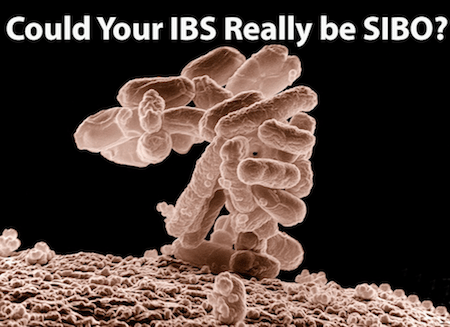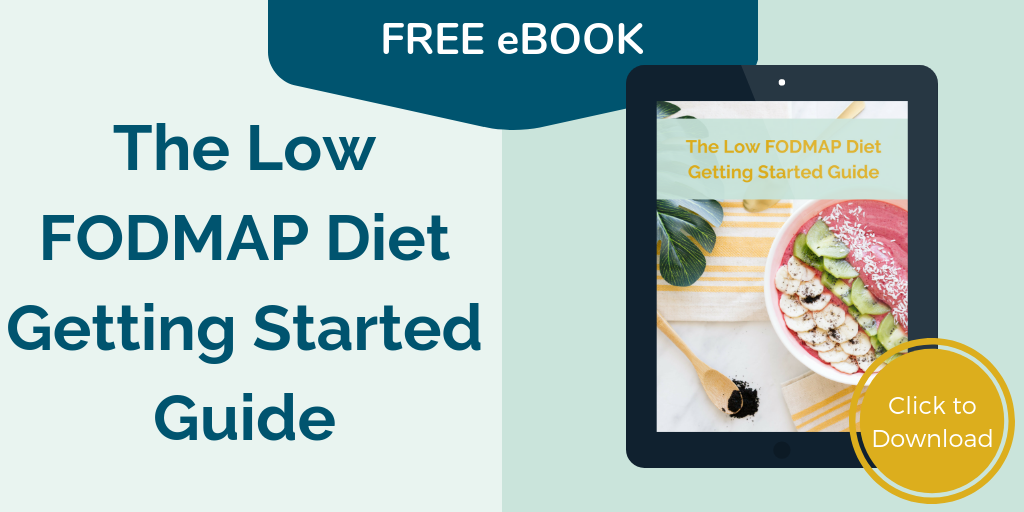Small Intestinal Bacteria Overgrowth (SIBO) and IBS
You’ve tried everything. You’ve spent countless hours on Google researching how to alleviate those annoying and uncomfortable symptoms of gas, bloating, distension, abdominal pain, diarrhea, and/or constipation. You’ve experimented with numerous herbal supplements, digestive enzymes and probiotics claiming to cure your IBS once and for all. Maybe you’ve even tried cutting out various foods – dairy, gluten, sugar with no real results. Does this sound familiar?
Why hasn’t anything worked? I explored this problem in detail in the article Why Don’t I Feel Better Yet? Truth is, there are a variety of reasons why you may not feel better yet.
The first thing I must tell you is to please go and see your doctor. If you have seen him/her already or haven’t been there yet, this is the place to start. It’s important to go back to your doctor after you’ve made changes and haven’t seen improvement. There may be additional tests your doctor can run to diagnose another condition. We want to make sure you cover all your bases and don’t get left out in the cold by yourself to suffer.
Ok, so you’ve seen your doctor. Now it’s time to ask… have you heard of SIBO?
SIBO or small intestinal bacterial overgrowth is a type of gut disorder that was only discovered recently. It can be responsible for symptoms that are very similar to the symptoms of IBS, however, unlike IBS which is managed well by following a low FODMAP diet, SIBO often needs to be treated differently.
What is SIBO?
Small intestinal bacterial overgrowth is a condition where abnormally high numbers of bacteria usually found in the colon (large intestine) start to grow in the small intestine.
The entire gastrointestinal tract, including the small intestine, normally contains bacteria. If you need a gut anatomy refresher, my article ‘3 Things You Need to Know About Your Gut’ is a great place to start. Most of the bacteria in the digestive system lives in the colon, with very little bacteria living in the small intestine. If the wrong kind of bacteria starts getting cozy and residing in your small intestine (especially the types that belong in the colon!) you are likely to experience symptoms like gas, pain and bloating.
Does SIBO cause IBS?
SIBO does not cause IBS. Research still hasn’t identified the exact cause of IBS, however we do have some idea of what can be contributing to the onset and existence of IBS – I have a whole video blog dedicated to the current theories about the causes of IBS if you are interested in learning more!
Research shows that people with IBS have a higher risk of developing SIBO. There are also many other factors that increase your likelihood of developing SIBO, like various disorders of the digestive tract, having had surgery on some part of the gut, and some chronic diseases. What is especially interesting and applicable to you is that researchers have found that SIBO tends to occur more frequently in females with IBS-D who experience bloating.
SIBO Diagnosis
SIBO is a complicated condition that is often overlooked as a cause of digestive upset because we don’t really know that much about it yet. Also, because its symptoms are shared with many other digestive disorders, it is hard to diagnose it in a doctor’s office. Many family physicians may feel uncomfortable with the diagnosis and treatment of SIBO, so you may need to bring this concept to their attention and find an alternative lab for testing.
Typical clinical symptoms of SIBO include: abdominal bloating and distention, pain, frequent belching and flatulence, chronic diarrhea and weight loss. On top of experiencing these symptoms, doctors need to do one of two tests to diagnose SIBO. On rare occasion, a doctor might get a small sample of bacteria from your small intestine to diagnose SIBO; however, because this process is quite invasive to get a sample, most people get breath testing done to confirm diagnosis. Although the bacteria sample tends to be more accurate, it is easier and more convenient for people to do the breath test. It’s quick, easy and painless! To complete the breath test, you usually have to drink a liquid containing a specific type of sugar that the bacteria in your gut love to feed on. The breath test measures the levels of gas produced by the bacteria in your gut as they breaking down the sugary drink. This will help your doctor decide whether or not you could have SIBO and how to proceed with treatment.
If you think you have SIBO, the first step is to talk to your doctor and confirm diagnosis potentially with a breath test.
SIBO Treatment
So, your test comes back positive and you’ve just been diagnosed with SIBO, what happens next? Research tells us that currently the best treatment option is taking antibiotics (prescribed from your doctor) for a period of time. The antibiotic treatment should kill off all of the invading bacteria in the small intestine to help get you (and your gut!) heal.
Emerging research is also telling us that the low FODMAP diet may also be helpful in reducing some of the symptoms of SIBO. Because the diet eliminates poorly digested sugars, it could prevent the invading bacteria in the small intestines from fermenting the sugars and worsening symptoms of bloating, gas and pain. More research needs to be done to determine whether the diet directly impacts symptoms of SIBO – but it is pretty cool that the low FODMAP diet could possibly help others with digestive disorders besides IBS! (well, we think it’s pretty cool 😉 )
Think you may have SIBO or wondering why symptoms are still being triggered? If you are stuck and feel like you need some help, I would by happy to support you. If you’re looking for support and more information to help you with the Low FODMAP diet, identifying triggers and better managing digestive symptoms then read more about the CLAIRITY Program. This is the best way to work with me in the program I offer to meet you where you are, provide you with credible, up-to-date advice and information to get you feeling better and get back to enjoying your life. I’d love to have you join us as a member.
The first step if you’re looking to improve irritable bowel syndrome (IBS) or another digestive disorder or disease, is to understand more about the Low FODMAP diet and if it can help. Download my free eBook to help you better understand this diet and get started implementing simple steps to get rid of symptoms like gas, bloating, pain, diarrhea or constipation related to IBS. Click here to get a copy emailed to you right away.
Wishing you good gut health & wellness,
Stephanie and the Team


